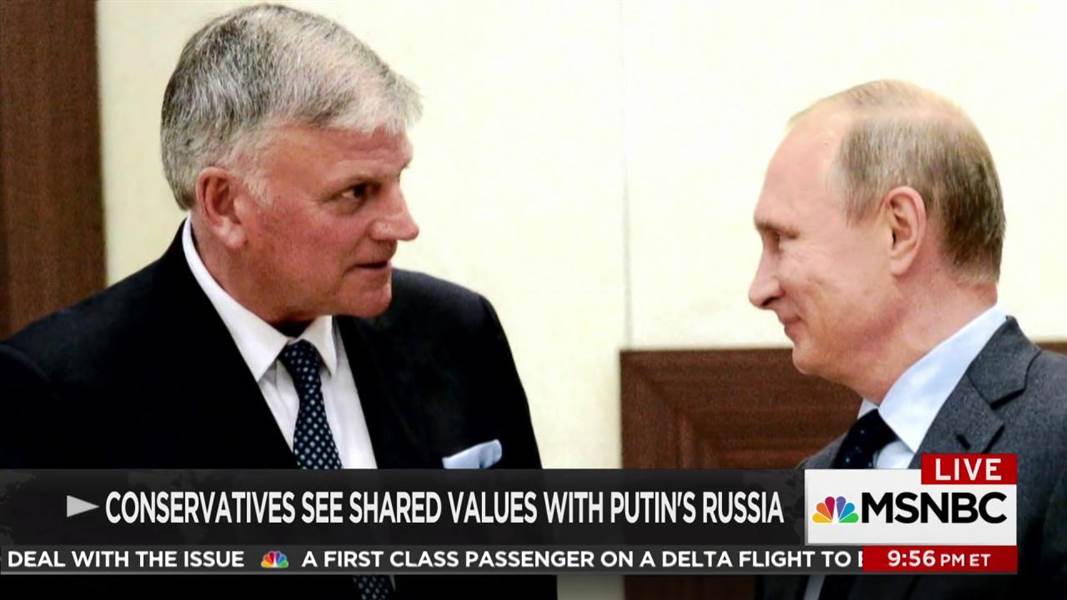
American evangelicals are finding common cause with Eastern Orthodox believers inspired by the rise of President Donald Trump and his association with Russia’s Vladimir Putin, according to scholars speaking at a recent New York conference attended by RW. Much of the conference, which was held at Fordham University in early November, echoed other observers’ claims that evangelical supporters of Trump have warmed toward Orthodoxy and Russia because of their mutual embrace of “traditional values” (see January, 2017 RW). Nicholas Gvosdev, a political scientist at the U.S. Naval Academy, struck a different note early on by speaking about how Orthodox Americans responded to the 2016 elections, setting the stage for this unusual courtship. Trump’s economic appeal to the Rust Belt states drew in many Orthodox who have traditionally been swing voters. Trump spoke about issues that resonated with the Orthodox such as on the Balkans, Egypt, and Syria, and some appreciated his more benign stance toward Russia and Putin, Gvosdev said. During the same time, the approval of same-sex marriage and the little-known case of gay rights supporters demonstrating at an Orthodox cathedral in San Francisco in 2015 made a segment of Orthodox believers more sympathetic to the religious freedom and prolife activism of the evangelicals and Catholics.
Writer and staunch “never-Trumper” Peter Wehner said that the evangelical-Orthodox alliance is growing stronger under the leadership of Franklin Graham, whose Samaritan Purse relief ministry draws from both Russian and American funders, as well as such religious right organizations as American Family Association and the World Congress of the Family. There is “a lot of courting going on” between evangelicals and the Russian Orthodox Church over their shared pro-life stances along with their critical attitude toward Islam and gay rights, he said. Gvosdev added that Putin’s shift to a more pro-Israel stance in recent years has caught the attention of the evangelicals and is another reason for the stronger ties between these churches.

Young practicing Catholics are increasingly involved in “trans-parish networks” and other organizations outside the traditional parish, according to Kathleen Garces-Foley of Marymount University. Garces-Foley, who was part of the Changing Spirituality of Emerging Adults project, presented a paper at the mid-October meeting of the Society for the Scientific Study of Religion in Washington, which RW […]
As the percentage of Mormons decline in Utah due to population changes and its least committed members leaving the fold, the LDS church is becoming more “sect-like” and ideological in a way similar to that of Mormons in other parts of the world, according to Rick Phillips of the University of North Florida. Since the […]
The millennial generation is showing interest in astrology and witchcraft, in some cases as alternatives to organized religion, reports the web site Market Watch (October 23). Writer Kari Paul cites the surveys showing a growing detachment from institutional religion and notes that “more than half of young adults in the U.S. believe sociology is a […]
For all the talk about the growth of “nones,” a core of active young Christians has remained constant in American society, although such young believers are more ethnically diverse than in the past, according to research by Timothy Clydesdale. In a survey of 1880 young adults, the researchers found active twenty-something Christians represented about 30 […]
The cult of Santa Muerta continues to gain followers, not only in Mexico but in North and South America, most recently drawing Mexico’s GLBT community, yet it’s conflict with the Catholic hierarchy has also come to a standstill, according to historian Andrew Chesnut. At the recent meeting of the Society for the Scientific Study of […]
Mexican evangelicals are following the trajectory of evangelicals in Latin America as they embrace conservative politics, according to Carlos Garma of Universidad Autonoma. Garma, who presented a paper at the recent meeting of the Society for the Scientific Study of Religion in Washington, said that observers considered evangelicals in Mexico as an exception to the […]
Latino Muslims appear to be uniquely immune to the allure of Islamic radicalism, such as the Islamic State (IS), despite U.S. fears that potential terrorists may infiltrate Latin America. In the Journal of Muslim-Minority Affairs (37:3), Mehmet Ozkan writes that even though the IS has drawn a growing number of foreign fighters, Latin America has […]
A controversy about teaching evolution in Serbia shows that the evolution-creation conflict can be played out along Eastern Orthodox lines. After “a group of interested citizens” in Serbia submitted a petition—with signatures from more than 50 academicians and 100 additional people with postgraduate degrees—asking to “revise the curriculum for study of evolution” so that it […]
British sociologist Grace Davie presents an extended essay on local and global developments in British religion in the online report Religion in Public Life: Leveling the Ground. Presented as a series of lectures at the University of Birmingham and published by the think tank Theos, the 100-page report starts with her region of Exeter and […]